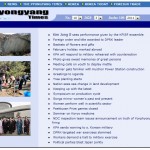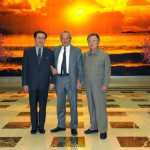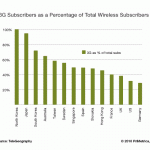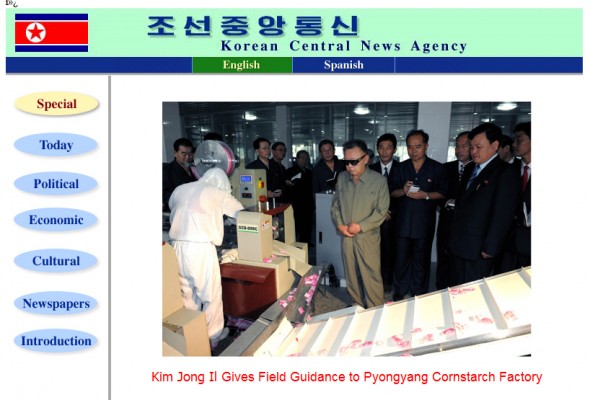According to Yonhap:
North Korea has begun to demand that every personal and electronic storage device in the country be registered in an apparent effort to crack down on outside information that may contain sensitive news about Middle East uprisings, a government source said Friday.
The measure took effect early this year and has led to the confiscation of a considerable number of electronic devices, the South Korean source said, declining to be identified.
The communist country is also allowing its notoriously harsh policing organ to have the right to approve the use of a mobile phone by an individual, the source said.
More than 300,000 mobile phones are believed to be in use in North Korea, which strictly controls the flow of information in and out of its territory in an effort to keep its 24 million people brainwashed and make them conform to the regime.
And according to the Straits Times (Singapore):
Pyongyang has ordered institutions and households to report on how many computers and even portable data storage devices such as USBs and MP3 players they own, early in 2011, according to a Seoul government source.
The North Korean police agency is in charge of keeping track of the IT gadgets possessed by everyone, presses criminal charges against those who failed to report and even confiscates many of the gadgets, the source said.
…
The reclusive communist state has been running a unit of authorities for years to crack down on North Koreans watching South Korean soap operas or foreign movies, which they call ‘non-socialist video’.
Pyongyang is also reinforcing a crackdown on use of cellphones and the Internet. It is estimated that more than 400,000 mobile phones are being used in North Korea. North Koreans are required to get government permission to use cell phones. They are also banned from bringing them into the country or using cell phones bought overseas.
Foreign members of international non-governmental organisations working in North Korea were also told to follow domestic regulations on cell phones.
It appears that the DPRK is attempting to treat these products the same way it has treated radios for decades. Lankov writes in his book, North of the DMZ:
Certainly, a person with some technical knowledge can easily make the necessary adjustments and transform such a receiver into a real radio. To prevent this from happening, the police undertake periodic random inspections of all registered receivers. Controlling the correct use of radio receivers is also an important duty of the heads of the so-called people’s groups or inminban. The head of an inminban can break into any house at any time (even in the dead of night) to check for the possible use of a non-registered receiver.
If a North Korean has access to foreign currency, he or she can buy a foreign-made radio set in one of the numerous hard-currency shops. However, after purchase the radio set was subjected to minor surgery in a police workshop — its tuning had to be fixed, so it could only receive official Pyongyang broadcasts (it appears this practice is declining in recent years).
The control was never perfect…
Of course it is questionable as to whether the inminban play a reliable role in “law enforcement” these days. Instead, individuals in these positions seem to play an increasing role in shielding their residents from Pyongyang’s dictates rather than assuming a pure-exploitation position. In the past we have seen how inminban effectiveness can affect local real estate prices. Also, when the government needed to apologize for the disastrous “recent” currency reform, they did so in person to the inminban representatives.
Given the proliferation of electronic devices, particularly in Pyongyang, in combination with the capacity of local police to carry out this mission, I believe the actual result of this policy will be the registration of “some” electronic devices along with the hiding and bribing required to keep others off the books. So inspection police just got a raise!




